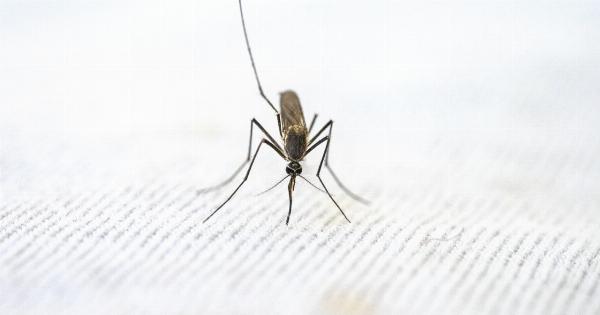Rare Disease Day is an annual awareness-raising event that takes place on the last day of February each year. This global observance aims to shed light on rare diseases and their impact on patients’ lives.
The main objective of Rare Disease Day is to raise awareness among the general public, healthcare professionals, policymakers, and the media about the challenges faced by individuals affected by rare diseases.
Origins of Rare Disease Day
The first Rare Disease Day was celebrated in 2008, organized by EURORDIS (Rare Diseases Europe) and supported by the National Alliances of Rare Diseases in various countries.
The event gained momentum, and since then, the movement has been growing rapidly, with thousands of events taking place in more than 100 countries worldwide.
What Defines a Rare Disease?
A rare disease is characterized by its low prevalence in the population. In most countries, a disease is considered rare if it affects fewer than 1 in 2,000 people. However, the exact definition may vary from one country to another.
There are over 6,000 identified rare diseases, and new ones are discovered regularly due to advancements in medical research and diagnostic techniques.
The Challenges Faced by Rare Disease Patients
Living with a rare disease can be extremely challenging. Due to their rarity, these conditions often go undiagnosed or misdiagnosed for years, leading to delayed treatment and unnecessary suffering.
Additionally, many rare diseases are chronic or life-threatening, making it difficult for patients to access appropriate care and support.
One of the major challenges faced by rare disease patients is the lack of awareness and understanding among healthcare professionals.
As a result, patients may experience delays in getting a correct diagnosis, incorrect treatments, or a lack of treatment options altogether. The limited knowledge about rare diseases also hinders the development of targeted therapies and effective management strategies.
Moreover, rare diseases are often neglected in healthcare policies and research funding. The low prevalence of these conditions may lead to insufficient resources being allocated to studying, understanding, and addressing them.
This further exacerbates the difficulties faced by patients and their families in accessing appropriate care, treatments, and support services.
Raising Global Awareness
Rare Disease Day plays a crucial role in enhancing global awareness and understanding of rare diseases.
The event provides an opportunity for rare disease organizations, patient advocacy groups, healthcare professionals, researchers, policymakers, and the public to come together and unite their efforts to address the challenges faced by rare disease patients.
Throughout the day, numerous awareness activities take place, such as conferences, seminars, information sessions, fundraisers, and social media campaigns.
These activities aim to educate the public about rare diseases, promote dialogue among stakeholders, and advocate for improved access to quality care, treatment, and support services for rare disease patients.
Importance of Rare Disease Day
Rare Disease Day plays a vital role in several areas:.
1. Raising Public Awareness
The general public often lacks knowledge and awareness of rare diseases.
Rare Disease Day serves as a platform to educate society about the challenges faced by individuals affected by rare diseases, as well as the need for increased support, research, and funding to improve their quality of life.
2. Empowering Rare Disease Patients
Rare Disease Day empowers patients and their families by providing them with a collective voice and a platform to share their experiences.
It encourages individuals to come forward, share their stories, and advocate for their rights, ultimately fostering a sense of community and support among rare disease patients.
3. Advocating for Policy Change
Rare Disease Day plays a vital role in advocating for policy change at the national and international levels.
By raising awareness and mobilizing stakeholders, the event highlights the need for inclusive healthcare policies that prioritize rare disease patients’ needs, including better access to diagnostics, treatments, and supportive care.
4. Driving Research and Innovation
Rare Disease Day also helps drive research and innovation in the field of rare diseases.
The increased visibility and awareness generated by the event encourage researchers, scientists, and pharmaceutical companies to invest in developing new therapies, diagnostic tools, and management strategies for rare diseases.
The Impact of Rare Disease Day
Since its inception, Rare Disease Day has made a significant impact globally. It has helped create a sense of community among rare disease patients, enabling them to connect with one another, share resources, and find support.
The event has also fostered collaborations between patient organizations, healthcare providers, researchers, and policymakers, leading to improved care and support services for rare disease patients.
Furthermore, Rare Disease Day has contributed to policy changes in many countries, highlighting the need for improved healthcare policies and increased research funding for rare diseases.
The event’s advocacy efforts have led to the implementation of national plans and strategies to address rare diseases’ specific challenges, facilitating access to better diagnostic tools, treatments, and lifelong care.
The Future of Rare Disease Awareness
While significant progress has been made in raising awareness about rare diseases, there is still much work to be done.
Continued efforts are needed to ensure that rare disease patients receive timely and accurate diagnoses, have access to appropriate treatments and support services, and are included in society without facing discrimination or stigma.
Rare Disease Day serves as a reminder that rare diseases require a collective effort from all stakeholders, including healthcare professionals, researchers, policymakers, and the public.
By joining forces and working together, we can create a more inclusive and supportive environment for individuals affected by rare diseases.
Raising Our Voices for Rare Diseases
On Rare Disease Day, let us amplify the voices of rare disease patients and their families. Through education, awareness, and advocacy, we can foster a world where no one with a rare disease is left behind.




























